Search Results
Showing results 661 to 680 of 1321

Horton Senses Something Small
Source Institutions
In this story time program, young learners listen to the Dr.

What's Hiding in the Air?: Rubber Band Air Test
Learners build devices from rubber bands to test for invisible air pollutants.

Biomimicry: Synthetic Gecko Tape Through Nanomolding
Source Institutions
In this activity/demo, learners examine a synthetic gecko tape with micron sized hairs that mimics the behavior of the gecko foot.
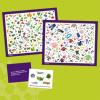
I Spy Nano!
Source Institutions
In this game, learners try to find nano-related objects on a game board. Learners investigate the different ways nano is in the world around us.
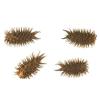
Design a Seed
Source Institutions
In this activity, learners will design a seed and test how it travels. Learners will use the Engineering Design Process to create a seed which can move from place to place.

Eyewitness Game
Source Institutions
In this demonstration (9th on the page), learners explore eyewitness memory and how memories differ amongst individuals. While the rest of the group is minding their own business (i.e.
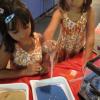
Sand, Plants and Pants
Source Institutions
In this activity, learners explore how the application of nano-sized particles or coatings can change a bigger material’s properties.
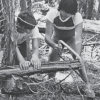
Sawing Away
Source Institutions
In this outdoor activity, learners saw sections from fallen trees, then count tree rings and look closely at patterns of tree growth.

Egyptian Measuring
Source Institutions
In this activity, learners compare the ancient Egyptian system of measurement, which was based on body lengths, to the customary and metric systems used today.

Dichotomous Key
Source Institutions
In this classification activity, learners will learn one way of organizing plants and animals.

Out of Control
Source Institutions
In this outdoor activity, learners release a portion of a lawn from human control—no mowing, no watering, no weeding, no pest control—and then investigate the changes that result over several weeks.

Logs to Soil
Source Institutions
In this outdoor activity, learners cut through and investigate rotten logs and then make log-profile puzzles for each other.

Monitoring Amphibians
Source Institutions
In this field study, learners discover how to collect data in the field and how their efforts can help certain animals, specifically, amphibians.
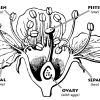
In Search of Pollen
Source Institutions
In this activity (on pages 9-14), learners dissect a real flower -- the kind of work botanists do.
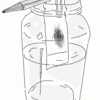
Show Your Colors!
Source Institutions
In this family or group activity, learners conduct a chromatography experiment to reveal the colors that leaves "hide" under their green pigments.
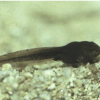
Life Story
Source Institutions
In this two-part activity, learners compare and contrast a variety of life cycles to better understand different organisms and how they develop.

Colored Shadows
Source Institutions
In this optics activity, learners discover that not all shadows are black. Learners explore human color perception by using colored lights to make additive color mixtures.
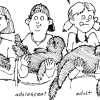
Otter Smorgasbord
Source Institutions
In this graphing activity (on pages 33-40), learners investigate how much and what kinds of food sea otter pups eat during their first year of life.
Fish Family Identification
Source Institutions
In this game, students will become familiar with fish shapes, learn that fish within a given taxonomic family have similar body shapes, and discuss how different body shapes enable fish to survive in
Tree Poker
Source Institutions
In this activity (p.14-15 of PDF), learners discover the concepts of competition and limiting factors as they relate to plant and animal communities.
